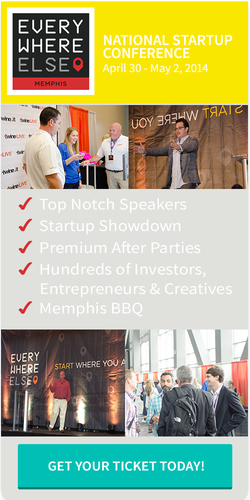 Every morning when an entrepreneur wakes up, he or she must embrace the fact that as their startup ramps up, each day will be fraught with bigger decisions than the day before. Part of the job description is the ability to quickly process tough decisions as they could swiftly make or break a fledgling business. Many in the tech sector thrive in this type of environment as risk taking is embedded in their DNA.
Every morning when an entrepreneur wakes up, he or she must embrace the fact that as their startup ramps up, each day will be fraught with bigger decisions than the day before. Part of the job description is the ability to quickly process tough decisions as they could swiftly make or break a fledgling business. Many in the tech sector thrive in this type of environment as risk taking is embedded in their DNA.
And while part of the appeal of being an entrepreneur is autonomy, there are times when the most important tool a founder can utilize is a mentor who has already navigated the road of ramping up a startup.
As an entrepreneur and executive recruiter in the tech startup ecosystem, the best piece of advice I’ve heard repeated time and time again is to “lead, follow, or get out of the way.” The onus of leadership is always on a company’s chief executive.
However, part of a savvy leadership strategy is to lead with the counsel of a trusted advisor to flatten the learning curve for ramping up. The shortest route to success is to find influencers who are willing to give you truthful advice. A capable mentor will guide you past “founderitis” (an oft-dreaded, though inevitable condition among nascent leaders) and help you scale to the next level.
Well-Known Founders Who Have Faltered
There have been many high profile cases where a founder’s ego has increased to the point where they are convinced they are infallible. Steve Jobs is an example. His conflict with then-Apple CEO John Sculley over the Apple 2 and advertising strategy led to his demotion and eventual departure from Apple. This highly public time-out allowed Jobs to reflect upon his hubris and prepared him well for his return as a humbled, but much more effective leader. He made an excellent mentor after this experience.
Next, consider Yahoo’s co-founder and former-CEO Jerry Yang. Yang over-exaggerated the value of Yahoo and snubbed Microsoft’s $44.6 billion offer. As a result, he was shown the door. The Marissa Mayer era of Yahoo is in full swing now.
These founders were rock stars in getting their respective companies to a certain point, but they were removed for a reason. They couldn’t meet their businesses needs at critical junctures of development.
If a leader allows their ego to reign supreme, they run the risk of having a false sense of ability and security. It’s the rare executive who can go from the clubhouse to the penthouse without a detailed playbook. Seeking out a mentor that has your back and will call you out for shortsighted or self-absorbed behavior is crucial for staying level headed and humble.
Learn from the Best
The hottest tech leaders have the best mentors:
• Mark Zuckerberg had Steve Jobs, Sean Parker and Don Graham, among others, for advice. Their collaborative guidance and counsel put Facebook on the map and transformed the social media landscape.
• Square’s CEO and co-founder Jack Dorsey tapped philanthropist Ray Chambers for mentorship.
• Salesforce.com CEO, Mark Benioff also looked to Steve Jobs as a mentor and has spoken fondly of their business and personal relationship.
The takeaway from these successful founders is that no man/woman is an island.
Outside influence and feedback are required for successful ramp up.
Finding a Mentor
The case has been made for the value of a mentor but it begs the question – How do you find the right people?
• Take an honest look at where your startup is now and where you want it to be.
• Seek out the key influencers and decision makers who scaled a similar path
• Directly approach each influencer and candidly ask for guidance
• Once a mentor is in place, actively engage them in key decisions only – don’t inundate them for minor details or they will disengage
• Keep the relationship strong – follow the advice and give updates or candidly explain why you are going a different direction
• Accept the tough criticism; if your skill set is no longer a fit for the enterprise, consider your next move
• Add to your mentors as the enterprise scales and enters each new phase of growth
• Give back. If you are approached to act as a mentor, graciously accept the challenge and guide the next generation of leadership
The tech ecosystem evolves at an incredible rate and can be very chaotic, therefore the best strategy for smoother navigation in uncharted waters is to tap into the seasoned traveler for clear, unbiased, and effective direction.
Charley Polachi, managing partner at Polachi Access Executive Search, can provide a expert insight ion the importance of mentors, particularly for entrepreneurs in the tech industry. As an executive recruiter, he knows the importance of a mentor and their role in shaping the best executives and leaders.



